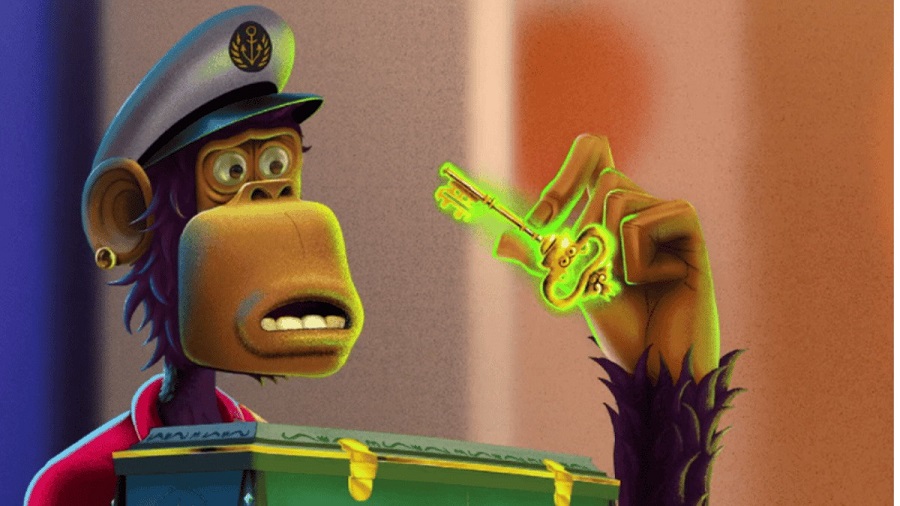
Monkeys, with their playful antics and curious nature, never cease to amaze us. In a peculiar turn of events, researchers and wildlife enthusiasts have observed instances of monkeys holding boxes. What drives this behaviour, and what can we learn about primate cognition from such occurrences? Let’s dive into the captivating world of monkey behaviour and explore the intricacies of a monkey holding a box.
The Curious Case of the Monkey Holding a Box
Imagine a scene in the heart of a dense jungle: a mischievous monkey, gripping a box with unparalleled fascination. This seemingly ordinary sight raises intriguing questions about the cognitive processes and instincts that drive such behaviour.
Monkey Behavior and Intelligence
Monkeys, like many other primates, exhibit remarkable intelligence. Studies have shown their ability to solve problems, use tools, and adapt to changing environments. The behaviour of holding a box might offer a window into the intricate workings of their minds.
Boxes in the Wild: A Primate Perspective
In their natural habitat, monkeys encounter various objects daily. Boxes, although not native to their environment, trigger a primal instinct to explore and interact with novel items. This behaviour reflects their adaptability and curiosity.
Also, read this article: Planning a Kemono Party?
The Connection Between Monkeys and Boxes
Researchers have long observed a peculiar connection between monkeys and boxes. Whether it’s playing, nesting, or simply carrying them around, boxes seem to captivate these primates. But why boxes? What is it about this mundane object that draws their attention?
Evolutionary Explanations
To understand the monkey-box connection, we must explore evolutionary theories. The instinct to investigate and manipulate objects could be rooted in the need for survival. Boxes, as novel items, stimulate their cognitive processes, preparing them for unexpected challenges in the wild.
Monkey Enrichment Programs
In captivity, providing enrichment activities is crucial for the well-being of monkeys. Boxes, introduced as part of enrichment programs, serve as mental stimuli, preventing boredom and encouraging natural behaviours.
Boxology: Understanding the Box Appeal
The allure of boxes to monkeys extends beyond mere curiosity. Psychologically, boxes provide a sense of security and a space for exploration. This attraction mirrors human fascination with mystery and discovery.
Funny Monkey Stories: Tales of Box Shenanigans
Researchers and caretakers share amusing anecdotes of monkeys and their antics with boxes. From impromptu games to using them as makeshift hats, these stories highlight the lighter side of primate behaviour.
Ethical Considerations in Studying Monkey Behavior
While studying monkey behaviour offers valuable insights, ethical considerations must guide such research. Balancing scientific curiosity with the well-being of the animals is essential to ensure responsible and humane practices.
The Monkey-Box Connection in Popular Culture
Monkeys and their interactions with boxes have found a place in popular culture. From movies to memes, these moments shape public perceptions of these intelligent creatures and contribute to their conservation.
DIY Monkey Enrichment: Bringing the Box to Your Primate Friend
For those with pet monkeys, creating DIY enrichment activities can be a rewarding experience. Providing boxes, along with safety considerations, allows owners to engage their primates in mentally stimulating play.
The Science Behind Monkey Cognition
Cognitive studies shed light on the intricacies of monkey minds. Understanding their cognitive abilities enhances our appreciation for the unique ways in which they interact with the world, including their affinity for boxes.
Conclusion
In unravelling the mystery of a monkey holding a box, we discover not just a quirky behaviour but a gateway to understanding primate cognition. From evolutionary roots to modern-day enrichment, the monkey-box connection unveils layers of complexity in these fascinating creatures.
FAQs
- Why do monkeys like boxes?
- Monkeys are naturally curious, and boxes provide mental stimulation and a sense of security.
- Are there any risks in providing boxes to pet monkeys?
- Owners should ensure the boxes are safe and free of hazards, such as sharp edges or small parts that could be ingested.
- Do all monkeys exhibit this behaviour with boxes?
- While not universal, the fascination with boxes is observed in various monkey species.
- How can I create a safe enrichment activity with a box for my pet monkey?
- Remove any potential hazards, ensure the box is clean, and supervise the interaction to guarantee safety.
- Are there ongoing studies on monkey behaviour and cognition?
- Yes, researchers continue to explore the cognitive abilities of monkeys in both natural and captive settings.
